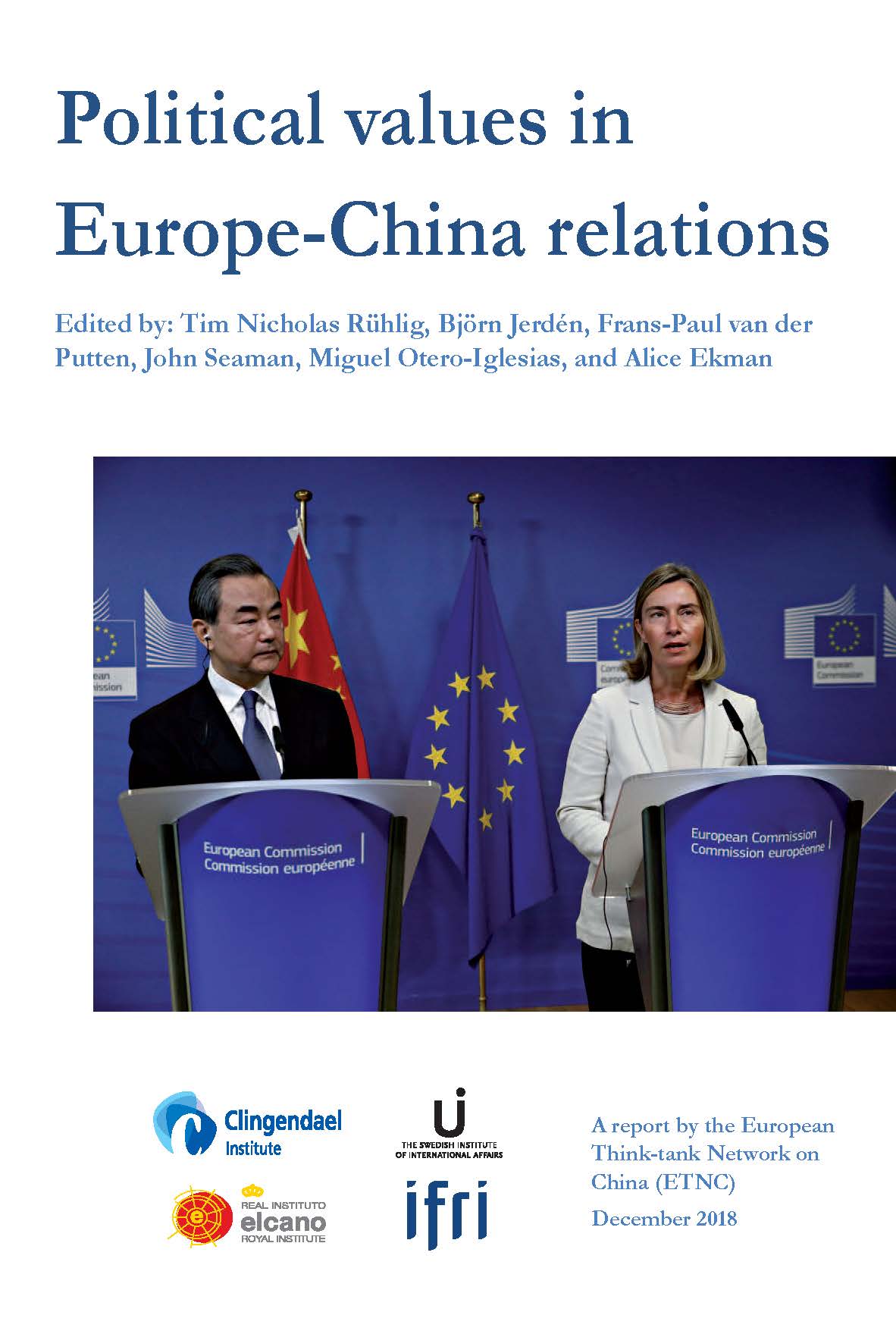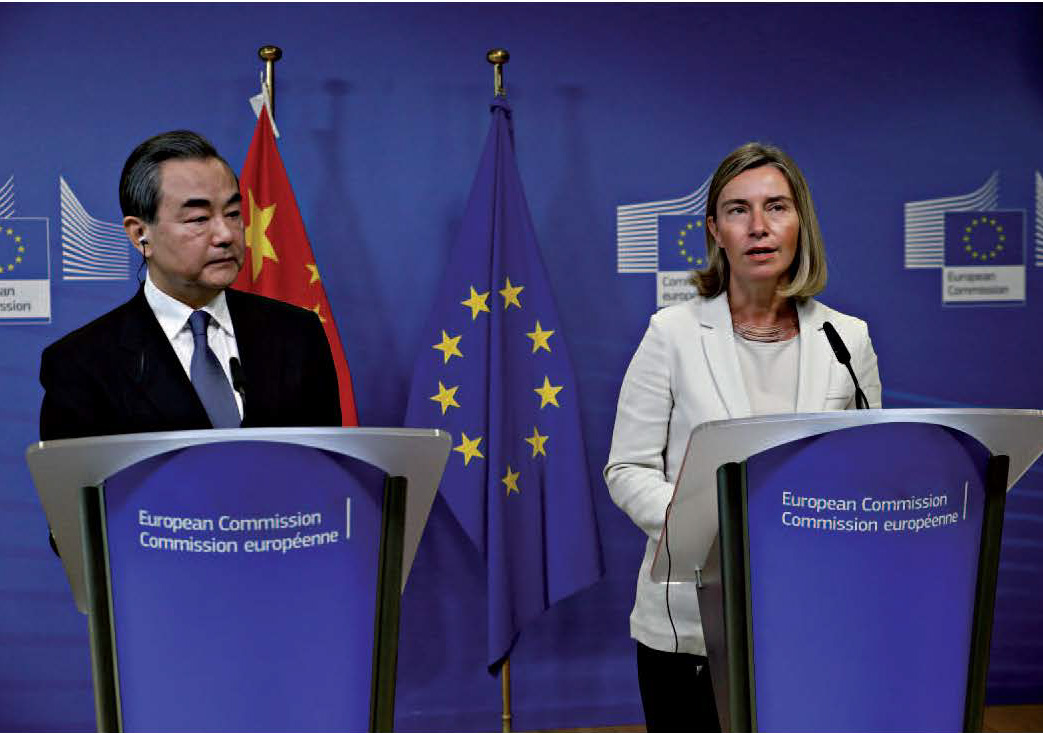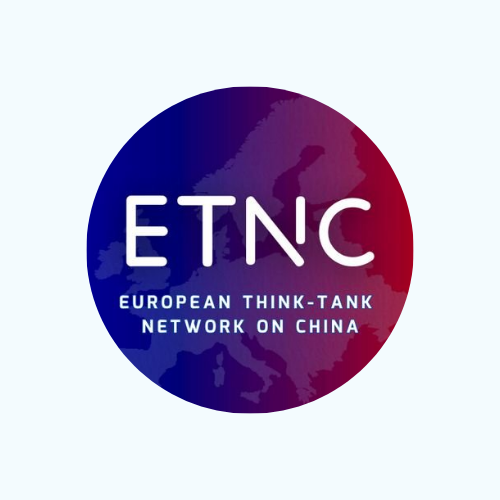Political Values in Europe-China Relations

What role do political values play in Europe-China relations 70 years after the signing of the Universal Declaration of Human Rights?

In its fourth annual report, the European Think-tank Network on China (ETNC), of which Ifri is a founding and coordinating member, examines how political values – namely democracy, human rights and the rule of law – shape Europe-China relations today. China experts from seventeen leading European research institutions have compared how these values inform the foreign policies of European states and the EU toward the most powerful autocracy in the world, the People’s Republic of China (PRC), and how the PRC influences the debate on political values in Europe.
The results display four different patterns of behavior among European countries: vocal and active; active and discreet; passive; and passive and potentially counteractive.
The report finds that three factors are of particular importance in making sense of differences in behavior among European countries:
- First, while there has been a general downgrading of the importance of political values in the approaches to China by most European states, younger democracies have been more affected by this trend.
- Second, states with a higher per capita gross domestic product tend to be more active in the field of political values in their relations with China. Close trade relations with China also correlate with a higher level of activity in this field.
- Third, Chinese pressure has led some European states to reconsider their level of activity in promoting democracy, human rights and the rule of law. Even so, they have not taken political values entirely off the agenda.
Despite China’s increased efforts to promote its image abroad, in all the countries analyzed the general public and large sections of the political elite and media hold negative views of China’s political system.
Chapters of the report:
1) The role of political values in Europe-China relations
Tim Nicholas Rühlig, Björn Jerdén, John Seaman, Frans-Paul van der Putten, Miguel Otero-Iglesias and Alice Ekman
2) Belgium’s multilayered China policy: A case of principled pragmatism?
Bruno Hellendorff
3) The Czech Republic’s values-based policy towards China reconsidered
Rudolf Fürst
4) Discreet diplomacy: Denmark’s pragmatic stance towards China
Andreas Bøje Forsby
5) Political values in France-China relations, 2018: The start of a policy shift under Emmanuel Macron
Alice Ekman
6) Germany’s promotion of liberal values vis-à-vis China: Adapting to new realities in political relations
Lucrezia Poggetti and Kristin Shi-Kupfer
7) Sino-Greek relations: Marked by values or opportunism?
Plamen Tonchev
8) Absent political values in a pragmatic Hungarian China policy
Tamas Matura
9) Political values in Italy’s China policy: A “constructive approach”
Nicola Casarini, Lorenzo Mariani, and Fabio Angiolillo
10) Latvia: A pragmatic approach without making significant concessions to China
Una Aleksandra Bērziņa-Čerenkova and Māris Andžāns
11) Human rights promotion and the changing role of political values in Netherlands-China relations
Frans-Paul van der Putten
12) Political values in Norway’s relations with China: Standing ground or giving in?
Hans Jørgen Gåsemyr
13) Poland’s modest approach to a values-based China policy
Justyna Szczudlik
14) Portugal-China relations: Political values play second fiddle
Carlos Rodrigues
15) Political values: A sensitive issue almost absent from Romania’s relations with China
Iulia Monica Oehler-Şincai
16) Political values in Spain-China relations: Empathy, discretion and patience
Mario Esteban and Miguel Otero-Iglesias
17) The prudent proponent Sweden’s normative China policy
Viking Bohman and Anna Michalski
18) UK-China: Broadening the values agenda
Tim Summers
19) Political values in EU-China relations: Towards a “principled” or a “pragmatic” approach?
Tim Nicholas Rühlig
Download the full analysis
This page contains only a summary of our work. If you would like to have access to all the information from our research on the subject, you can download the full version in PDF format.
Political Values in Europe-China Relations
Related centers and programs
Discover our other research centers and programsFind out more
Discover all our analyses
Opening up the G7 to South Korea to Address Contemporary Global Challenges
The G7’s global influence has diminished as powers like China reshape international governance through initiatives such as BRICS and the Shanghai Cooperation Organisation (SCO). With the G7 now representing just 10 per cent of the world’s population and 28 per cent of global GDP, its relevance is increasingly questioned.
Expanding SPDMM as a pivotal institution in the Pacific – A French perspective
The South Pacific Defence Ministers’ Meeting (SPDMM) is the only forum that brings together defense ministers from the wider South Pacific — including Chile, which is hosting it for the first time. This heterogeneous group of countries with varying resources, capacities, and interests — Australia, Chile, Fiji, France, New Zealand, Papua New Guinea (PNG), and Tonga — are united by their shared determination to strengthen cooperation on maritime security and humanitarian assistance and disaster relief (HADR) activities.
EU’s Derisking From China: A Daunting Task
With economic security as a major concern, the EU has recently turned to “derisking” from China. The EU strategy entails reducing critical dependencies and vulnerabilities, including in EU supply chains, and diversifying where necessary, while recognizing the importance and need to maintain open channels of communication.
Sri Lanka’s NPP Government. From System Change to Structural Compliance
In September 2024, a relative outsider to Sri Lanka’s two-party-dominated political system, Anura Kumara Dissanayake, won the presidential elections. The anti-establishment, populist movement he represented, the National People’s Power (NPP), went on to receive an overwhelming mandate in the November 2024 general elections, winning 159 seats in a 225-member parliament.















